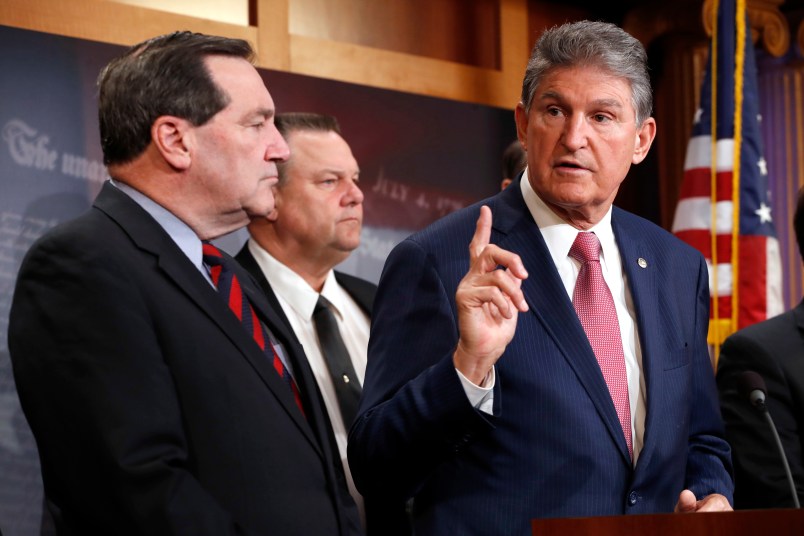WASHINGTON (AP) — A key Senate committee advanced a sweeping tax package to the full Senate on Tuesday, handing Republican leaders a victory as they try to pass the nation’s first tax overhaul in 31 years.
The Senate Budget Committee voted 12-11 to advance the bill as two committee Republicans who had said they were considering voting against the measure — Bob Corker of Tennessee and Ron Johnson of Wisconsin — backed the legislation.
President Donald Trump personally lobbied Republican senators at the Capitol on Tuesday and the bill passed with little fanfare other than a few protesters who tried to disrupt the vote. All 11 Democrats were opposed.
The White House celebrated the vote.
“The momentum driving our shared priorities of job growth, economic competiveness, and fiscal responsibility through tax reform is undeniable,” White House press secretary Sarah Huckabee Sanders said in a statement.
As a sweetener for some Republicans, the budget committee added a provision to the tax bill that would allow oil drilling in Alaska’s Arctic National Wildlife Refuge. Drilling in the refuge has long been a contentious issue, pitting environmentalists against those who want to increase domestic oil production.
The bill still faces hurdles in the Senate with at least six senators raising sometimes contradicting concerns.
It got a boost Tuesday when Sen. Susan Collins, R-Maine, won support to amend the bill to allow homeowners to deduct at least a portion of their local property taxes on their federal tax returns.
The current Senate bill repeals the entire state and local tax deduction, which helps more than 43 million families reduce their federal tax bills. Collins said Trump and Senate GOP leaders agreed to amend the bill to allow homeowners to deduct up to $10,000 in property taxes, which is similar to a provision in the House-passed bill.
When asked if she is now more likely to support the bill, Collins said that is a “fair assumption.”
Johnson has complained that the package doesn’t cut taxes enough for business owners who report business profits on their individual tax returns. Corker said he is concerned that the package will add to the federal government’s $20 trillion debt.
After Trump’s meeting with Senate Republicans, Corker said, “I think we’re getting to a very good place on the deficit issue.”
Corker and other deficit hawks want the package to include a “trigger” that would automatically increase taxes if the legislation fails to generate as much revenue as they expect.
An estimate by congressional analysts says the Senate tax bill would add $1.4 trillion to the budget deficit over the next decade. GOP leaders dispute the projection, saying tax cuts will spur economic growth, reducing the hit on the deficit.
Many economists disagree with such optimistic projections. The trigger would be a way for senators to test their economic assumptions, with real consequences if they are wrong.
The provision, however, is drawing opposition from some Republicans.
“I am not going to vote to automatically implement tax increases on the American people,” said Sen. Bill Cassidy, R-La. “If I do that, consider me drunk.”







And with that the American people will be screwed
Looks to me like the plan is to ram this thing through the Senate this week, and get through the reconciliation process in the House and get final approval in both the House and the Senate before the Alabama special election, just in case Doug Jones beats Roy Moore.
Which makes a lot of sense if they’ve barely got the votes. Can afford to lose two votes in the Senate versus can only afford to lose one vote in the Senate could be the difference between passage and failure.
Not since the presidency of William McKinley have the interests of the rich and already powerful ridden so gleefully over the poor and working-class.
These aren’t even really the interests of the rich and already powerful (or even of a tiny group among the rich), unless you include pitchforks and torches among their interests.
Can someone explain how a tax bill can be passed without the 60 vote threshold? I thought that was a big stumbling block with the Obamacare repeal? Any budgetary bills had to be passed with 60 votes. Maybe I’m misreading that?